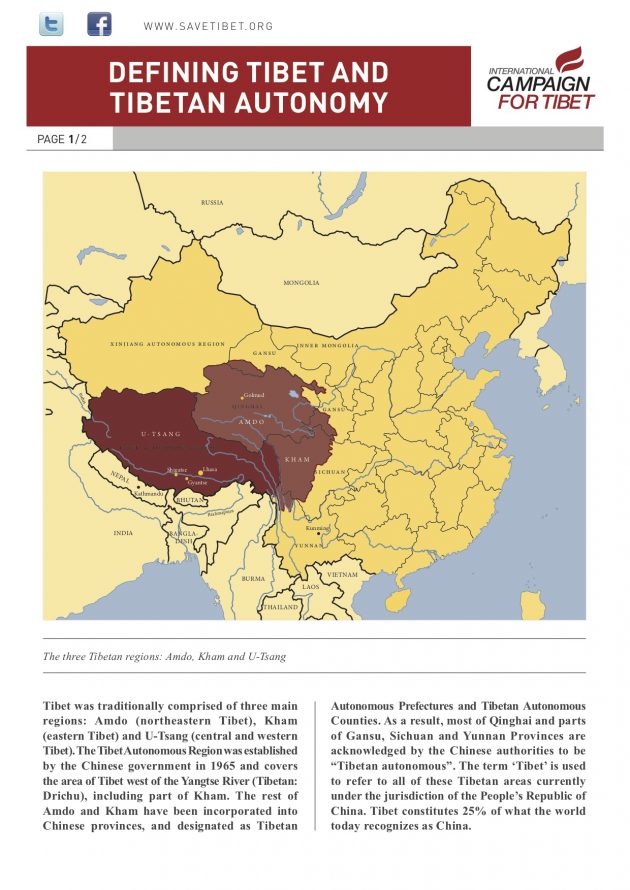
Tibet was traditionally comprised of three main regions: Amdo (northeastern Tibet), Kham (eastern Tibet) and U-Tsang (central and western Tibet). The Tibet Autonomous Region was established by the Chinese government in 1965 and covers the area of Tibet west of the Yangtse River (Tibetan: Drichu), including part of Kham. The rest of Amdo and Kham have been incorporated into Chinese provinces, and designated as Tibetan Autonomous Prefectures and Tibetan Autonomous Counties. As a result, most of Qinghai and parts of Gansu, Sichuan and Yunnan Provinces are acknowledged by the Chinese authorities to be “Tibetan autonomous”. The term ‘Tibet’ is used to refer to all of these Tibetan areas currently under the jurisdiction of the People’s Republic of China. Tibet constitutes 25% of what the world today recognizes as China.